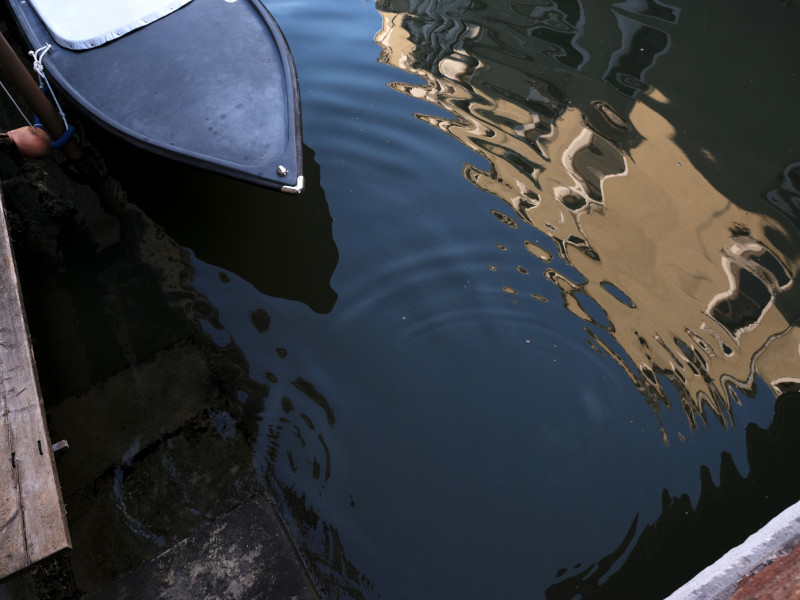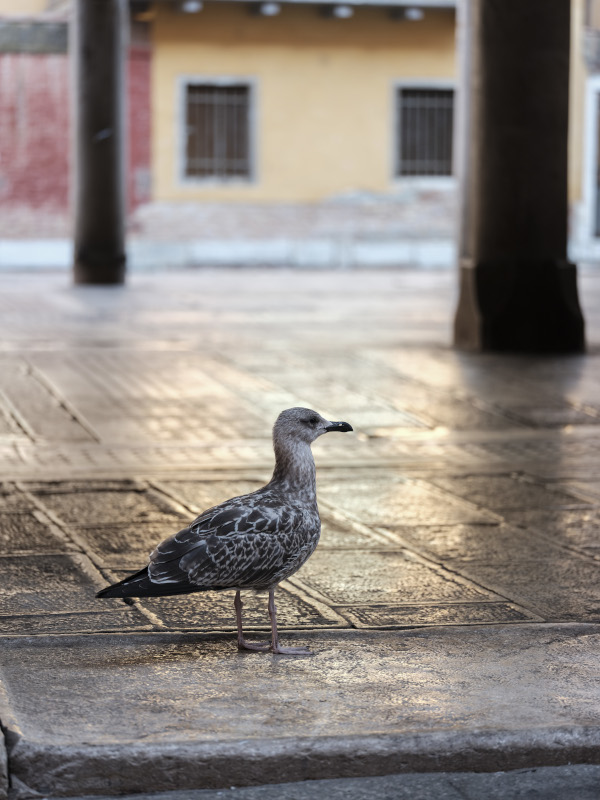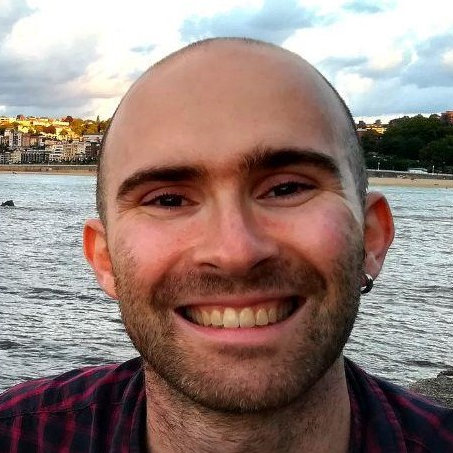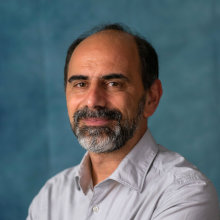Green and Blue Stories
Narratives for a sustainable future
About
The ecological transition is not only about radical social and economic changes, but simultaneously requires a transformation of our imaginary. We need new stories, narratives and perspectives to put our present condition into focus and prepare for different future scenarios. This research project aims to explore and employ the power of stories and story-telling in the different contexts of the environmental crisis, which, according to Amitav Ghosh’s fundamental analysis, is also “a crisis of imagination” ("The Great Derangement", 2016).
The project is situated within the field of the Environmental Humanities, understood as a self-conscious interdisciplinary framework that offers responses to environmental and climate breakdown. It combine humanities, arts, social and natural sciences to shed a light on the cultural dimension of the ecological crisis in a critical/creative horizon and with a distinctive activist and justice-oriented focus (see Armiero & Iovino, 2020, “Environmental Humanities”, in “Enciclopedia Italiana”, “X Appendice”). In line with this public vocation, the Green and Blue Stories project aims at bridging research (especially in the field of ecocriticism) and outreach (the publishing world).
Since 01/01/2022, the project has been working on two parallel fronts with two complementary objectives:
- engaging with state-of-the art research in ecocriticism and the Environmental Humanities to produce a curated database for research and teaching purposes on the relationship between narrative/narration and ecology.
- creating a series dedicated to the Environmental Humanities with a focus on Venice in collaboration with the publishing house wetlands.

Database
This curated database is intended as a research and teaching tool that offers pathways into the field of the Environmental Humanities. Each item is labelled with one or more tags – connected to key terms/research areas in the Environmental Humanities – and includes a short commentary. The database is intended as a resource for university students, high school students and general readers. Earlier versions of this database have been shared, in the course of the project, with the Ca’ Foscari BALI library, THE NEW INSTITUTE Centre for Environmental Humanities (NICHE), and the publishing house wetlands.
Tags employed in the database
Genres
- FICTION
- NON-FICTION (essays, journalism)
- CREATIVE NON-FICTION (literary journalism, travel writing)
- POETRY
Other descriptors
- ACTIVISM: climate activism/action
- ANIMAL STUDIES: nonhuman animals; including critical animal studies
- ANTHROPOCENE: concerning the concept of the Anthropocene and its critiques
- BLUE HUMANITIES: ocean- and sea- related works
- BODY & GENDER: connecting the body, gender and environmental issues; ecofeminist perspectives
- CITIES: focused on one or more urban environments
- COMMONS & ENCLOSURE: on commoning and privatization processes
- ECOCRITICISM: the critical study of art/literature and the environment
- ECOLOGIES: exploring one or more specific ecologies as case study
- ENERGY: all forms of energy-based narratives and critical interventions (from oil and coal to wind and solar)
- ENVIRONMENTAL HUMANITIES: addressing explicitly the field of the Environmental Humanities, its challenges and opportunities
- INDIGENOUS: narratives/research involving indigenous people
- MINERALS: nonorganic ecologies
- NEW MATERIALISM: an influential ‘school’ within the Environmental Humanities broadly concerned with the agency of matter
- POLITICAL ECOLOGY: the study of the relationships between political, economic and social factors with environmental issues
- POSTCOLONIAL & DECOLONIAL: perspectives on the environmental crisis from/about racialized people, or engaging with the environment-colonialism nexus
- POSTHUMANISM: philosophical and critical perspectives that challenges the anthropocentrism of traditional humanist views by stressing various forms of interconnectedness between human and nonhuman entities
- PLANT STUDIES: trees and vegetable ecologies; including critical plant studies
- SPECULATIVE FICTION: includes science fiction, climate fiction, solarpunk, post-apocalyptic narratives
- YOUNG ADULT: fiction targeted at adolescents

Events and publications
wetlands - Barene series
The Green and Blue Stories project has actively collaborated on the creation of an Environmental Humanities series with the Venetian publishing house wetlands (launched in 2021). This series is named Barene, is dedicated to Venice, its cultural heritage and its environmental condition and currently counts 7 books. The flagship project has been the book “Venice and the Anthropocene: An Ecocritical Guide” (2022), edited by Cristina Baldacci, Shaul Bassi, Lucio De Capitani and Pietro D. Omodeo. With over 40 short essays by international authors, this volume has made the case for seeing Venice as a privileged observatory of the Anthropocene. The book was also published in Italian ("Venezia e l’Antropocene. Una guida ecocritica") (tr. Lucio De Capitani).
The collaboration has also provided wetlands with editorial assistance and feedback for other Barene projects: “L’Arcipelago delle Api” (Chiara Spadaro, 2022), “Oceano” (Steve Mentz, 2023), “Mal di terra” (Nikolaj Schultz, 2023) and “Essere pietra: Ecologia di un mondo minerale” (Federico Luisetti, 2023).
2024
- November 2024, “Dall’utopia cozy alla distopia critica: poetiche solarpunk nell’opera di Becky Chambers, Andrew Dana Hudson e Cherie Dimaline” by Lucio De Capitani, in “Narrazioni dall’Antropocene. (Pre)visioni della crisi ambientale nella letteratura e nella cultura visuale” [ITA], edited by Giulia Fabbri for the Environmental Humanities series [ITA] of Edit Press
- 25 October 2024: participation (Lucio De Capitani) in the conference “DEEP TIME: Temporalidades, Ecologia e o Antropocénico na Banda Desenhada e Outros Media” [POR], Museu Nacional de História Natural e da Ciência. Presentation: “Solarpunk poetics: how (not) to imagine utopia in the Anthropocene”
- 30 May - 2 June 2024: participation (Lucio De Capitani) in the symposium "Confluence: Situating the Environmental Humanities", University of Warwick. Participation in a roundtable on the methodological challenges and opportunities in the Environmental Humanities
- 5 April 2024: participation (Lucio De Capitani) in the round table “The Making of Expatriates: Cultural Flows and Adaptability”, Ca’ Foscari University of Venice. Presentation: “Ecomodernist ideology vs. (Eco)ModernistLiterature”
- 15-16 February 2024: participation (Lucio De Capitani) in the conference “Narrazioni dall'Antropocene. (Pre)visioni della crisi ambientale nella letteratura e nella cultura visuale [ITA]”, Sapienza Università di Roma. Presentation: “Tre vie per il solarpunk: i romanzi utopici e/o distopici di Becky Chambers, Andrew Dana Hudson e Cherie Dimaline”
2023
- December 2023: publication of a Special Focus “Exploring new routes in the postcolonial environmental humanities” (ed. Lucio De Capitani, Shaul Bassi) in the journal “From the European South - a transdisciplinary journal of postcolonial humanities”. “Fragile symbioses: introducing new routes for postcolonial ecocriticism” and “From ecocriticism to extinction, and beyond: an interview with Graham Huggan”
- 12-17 August 2023: Participation (Lucio De Capitani) to the conference “Ecologies of Childhood”, University of California Santa Barbara. Presentation: “The poetics of consumption in Cherie Dimaline’s ‘The Marrow Thieves’: from YA dystopia to indigenous solarpunk”
- 28 June - 2 July 2023: participation (Lucio De Capitani) in the conference "Multiple Crises and the Asian Anthropocene: Climatic, Ecological, and (Post)Colonial Perspectives", Korea Advanced Institute of Science and Technology (KAIST) and Institute for Basic Science (IBS), Daejeon, South Korea. Presentation: “Snapshots of a global/Italian Anthropocene: strategies of representation in Amitav Ghosh and Wu Ming 1”; participation in the roundtable “Anthropocene Commons Pedagogies”
- 6-10 June 2023: participation (Lucio De Capitani) in the conference “Imagining Environmental Justice in a Postcolonial World”, Sorbonne Novelle University, Paris. Presentation: “Adaptation (In)justice: Interrogating Resilience through Mahasweta Devi’s ‘Pterodactyl, Puran Sahay, and Pirtha’”
- 7 May 2023: presentation of “Venice and the Anthropocene” (Lucio De Capitani) at the event "Pensare come una laguna [ITA]", as part of the “Pavè - pedalando a Venezia” festival
2022
- 13 December 2022: participation in the event "Cosa può fare la cultura umanistica per l’ambiente [ITA]" (Ateneo Veneto, Venice). Presentation (Cristina Baldacci, Pietro Daniel Omodeo, Lucio De Capitani) of “Venice and the Anthropocene”
- 11 November 2022: publication of “Venice and the Anthropocene: An Ecocritical guide”
- 12 October 2022: participation in the Anthropocene Curriculum initiative event “Collaborative Practice on a Changing Planet” (Haus der Kulturen der Welt, Berlin). Presentation (Lucio De Capitani, Emiliano Guaraldo) of Venice and the Anthropocene
- 31 August 2022: book presentation (Shaul Bassi, Luca Cosentino, Lucio De Capitani): “A Guide to Anthropocene Venice”, as part of Canaletto’s Venice Revisited, National Maritime Museum (London)
Team
Lucio De Capitani
Researcher
Shaul Bassi
Supervisor



